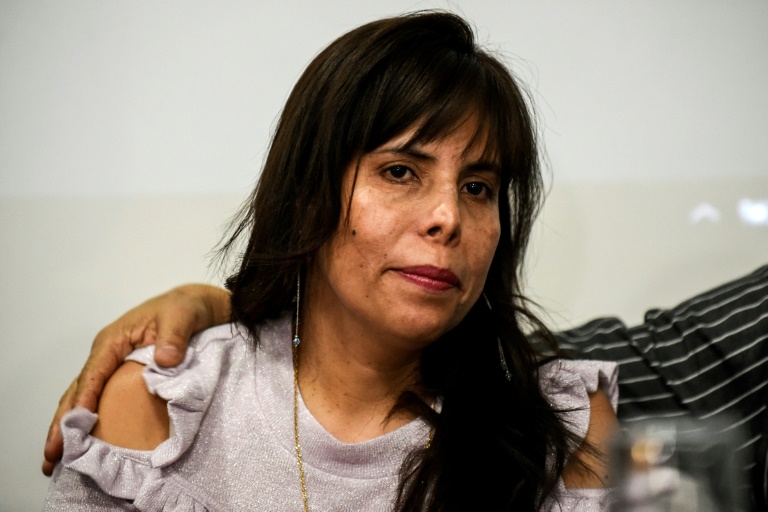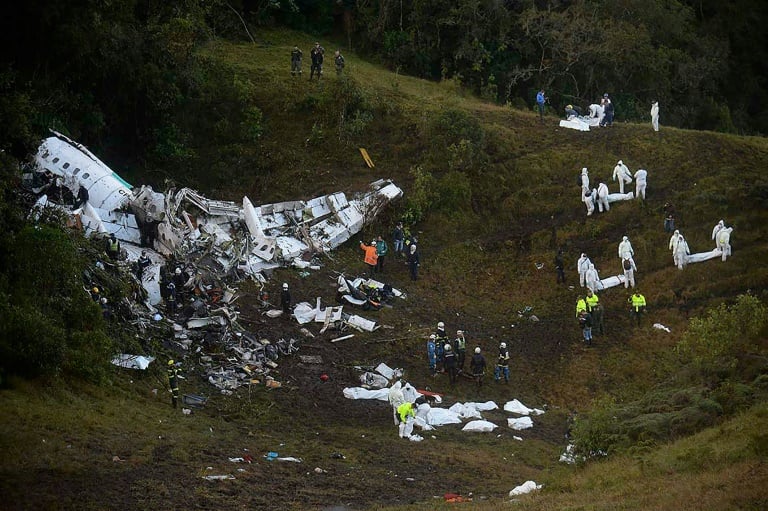Nzimande tells SACP conference he won’t step down as a minister in the GNU
Once again, she felt the bottom drop out of her life, just as she had on November 29, 2016 when the plane went down.
“I had the sensation that my husband was being sent back to me — in pieces,” said Belle, 47.
For the former schoolteacher, whose husband Cezinha was a physiotherapist for the southern Brazilian club, recovery a year later feels fragile.
This time 12 months ago, the long unfavored Chapecoense had a surprisingly good showing that landed them at the finals of the regional Copa Sudamericana tournament to be played in Colombia.
But the euphoric group that boarded its connecting LaMia flight 2933 out of Bolivia never reached its destination.
Running out of fuel over the mountains outside Medellin, the plane crashed, killing 71 of the 77 people aboard, including 19 players, 14 coaching staff, nine management staff and 20 journalists.
The tragedy also caused havoc in the lives of hundreds more back home.
Generally these were young families just making their way in a sporting world where injuries or turns in club fortunes can suddenly undermine bank balances and dreams. Those left behind were unprepared.

Ximena Suarez is a Bolivian crew member who survived the plane crash
– Whose tragedy? –
At first, there was intense mourning and unity in Chapeco, which has been inundated by support from the footballing world.
Many other clubs wore the Chapecoense colors in honor of the dead and in August this year, Barcelona played a charity match against the club.
But as time went on, divisions emerged in the town, with survivors feeling left out as the club dramatically rebuilt and returned to winning ways.
“The club restored itself, getting all the necessary help. It mobilized, marketing itself on the tragedy and relaunching itself, while all these lives were pushed to the side,” Belle said.
She and Mara Paiva, widow of ex-player-turned-commentator Mario Sergio Pontes de Paiva, started the Association of Relatives and Friends of the Victims of the Chapecoense Flight to press for compensation.
“The tragedy was not about the Chapecoense club, it was about the families,” says Paiva, also pushing for more support from media companies whose staff were killed in the plane.
Paiva, 51, has spent the last 12 months trying to rediscover meaning to her life and to fight for someone to be held responsible.
Although she has been paid a life insurance policy, as have the other families, she rejected a $200,000 settlement from the insurers of LaMia airline, offered on condition that any future claims be dropped.
With investigations ongoing in Bolivia and Colombia, it’s too early to draw a line under the affair, she says.
“We want everything to be left clear so that this sloppiness, this lack of care, doesn’t happen again. Everyone knew that the airline had a bad reputation and was in a terrible financial state,” she said.
– Club’s role disputed –

Yaneth Molina, flight controller of flight LaMia 2933 speaks during a presentation of her book “I also survived” at Antioquia’s Aviation Academy, on November 17, 2017
While the investigations drag on, the club has set up a group to boost dialogue.
“From the start, Chapecoense has sought to give all possible help to the families, but it in addition to rebuilding as a football club, it is restructuring the administrative side,” said spokesman Fernando Mattos, noting that the club chairman and part of the management were also lost that day.
The club, which has already paid out insurance claims, faces 15 more legal cases.
Recently, it announced it was donating 28,000 reais ($8,600) a month to Abravic, another victims’ support association, to help pay for schooling.
Abravic member Rosangela Loureiro, widow of midfielder Cleber Santana, accused the club of showing “a lack of respect.”
In her case, life is less complicated because her husband was 35 and at the end of a career that also saw him play at Atletico Madrid and in Japan. They had already planned for a post-football future.
“There are people who are in financial difficulties now, people who were just starting careers,” she said.
“They’re people who were living day to day and weren’t able to think about the future.”
Loureiro has moved to Recife in northeastern Brazil with her sons, aged 15 and 12, who both want to become football players.

This file photo taken on November 29, 2016 shows rescuers searching for survivors from the wreckage of the LAMIA airlines charter plane that crashed in the mountains of Cerro Gordo, Colombia
Belle says she’s not ready to move on.
“When we manage to get everyone to accept their responsibility, then we will be calmer, knowing that everyone will have new opportunities,” she said.
Download our app and read this and other great stories on the move. Available for Android and iOS.